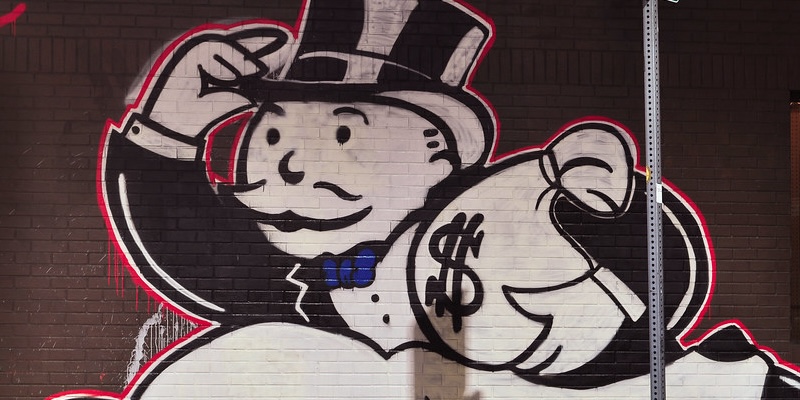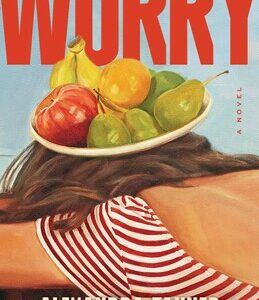Old Money Made New: 5 Novels of Generational Wealth and Income Inequality
Glenn R. Miller Recommends Jenny Jackson, Thomas Mann, Kevin Kwan, and More
One summer day when I was eight, I was riding in the back seat of our family’s four-year-old Ford LTD. Dad was driving and Mom was sitting next to him. The car that we had been following—a new 1968 Lincoln Continental—turned into our neighbor’s driveway. Dad had been admiring it ever since it pulled in front of us two blocks earlier.
“Wait. Is that Frey? Did he get a new car?” my father asked.
“Yes,” my mother answered. “His father died.”
Without missing a beat, I said, “Whoa. Was that the car his dad had?”
Both of them laughed at my question, partly because they knew Mr. Frey’s father and the condition he had been in for years, but primarily because of the innocence of the question. My understanding of the complexities of inheritance would deepen over the years, not only because of personal events, but through a rich vein in literature, as well.
There are several books which use a person’s death as the impetus to explore issues pertaining to family birthright and financial legacy. In my novel, Doorman Wanted, when his father dies, young heir Henry inherits a massive estate, including an Upper East Side residential building.
The problem is, Henry doesn’t want any of it, so he poses by day as the building’s doorman; by night, he secretly resides within his penthouse unit. No one in the building knows that the reclusive building owner and the charming doorman are one in the same.
Fictional character Henry’s inheritance may be deemed large in scope, but not unusual in occurrence. According to market analysis conducted by Cerulli and Associates as reported by Forbes Magazine, the world is undergoing the largest generational transfer of wealth in history.
Between now and 2045, more than $70 trillion will go directly to the heirs of “the Silent Generation” and Baby Boomers, those generally known as Millennials. This transfer of wealth will impact all aspects of an individual’s and family’s life, from debt extraction to property purchases to global travel; it will also impact one’s self-regard.
It’s that latter, non-transactional issue that I find to be the most compelling and the stuff of novels. The following is a list of old and new titles which thoughtfully explore this topic.
*

Charles Dickens, Great Expectations
Wealth and inheritance—and the impact of both on a protagonist’s psyche—are scrutinized within several (all?) of Dickens’s novels. One of the most disquieting sections of Expectations is young Pip’s evolving attitude toward Joe, his kind brother-in-law who is a simple, though successful, blacksmith.
Once Pip begins receiving money from his secret benefactor, his world outlook and personal relationships are altered, a plot development that reflects poorly on our young Pip. He regards his windfall as many heirs do—a sign that they are superior and have achieved accomplishments beyond their circle. With time and maturation, Pip’s regard of Joe is normalized; that is to say, he sees the human value, not the financial account.

Thomas Mann, Buddenbrooks: The Decline of a Family
Being a bit of a Germanophile, I would contend that the granddaddy—der Opa—of wealth-transference novels is Thomas Mann’s Buddenbrooks. One motif within the novel is that of decadence and decay. Mann looks at how wealth is not only generationally diluted—a common and understandable consequence—but also how its presence and presumptive existence can be individually and societally detrimental.
An equally important theme that Mann explores is the conflict between commerce and art—a conflict not only in terms of resources but in perceived social value, as well—a tension that plays out in mid-nineteenth century Hamburg just as it does in twenty-first-century America. Within individuals, art and commerce are often depicted as either/or choices; that is, one is either a starving artist or a wealthy businessperson. It is the rare individual who strikes it rich in the arts.

Cynthia D’Aprix Sweeney, The Nest
The subject of assumed inheritance plays out entertainingly and, at times, cringingly, within Cynthia D’Aprix Sweeney’s wonderful novel, The Nest. The four Plumb children were set up by their now-deceased father for a nice, midlife financial bump when the youngest child turned forty, an event set to take place shortly after the beginning of the book.
In the years since the father’s death however, this inheritance—or “nest,” as the children affectionately refer to it—has grown considerably. Rather than receiving a minor windfall, each child is well aware that they will gain a sizable sum of money and, in their own separate ways, is depending upon.
The problem enters when oldest son Leo has a Chappaquiddick-esque drunken accident with a young resort waitress. Though nobody dies in the car accident, a large sum of money is needed to cover the victim’s medical bills and Leo’s extended stay in a rehab center. Enter, the nest. With gentle humor throughout, Sweeney explores family expectations around the transformative power of wealth.

Kevin Kwan, Crazy Rich Asians
In Kevin Kwan’s Crazy Rich Asians, the matter of hiding one’s inheritance and family stature takes center stage. Kwan’s main character, Nick, hides from his family’s outrageous wealth by coming to America and joining the world of academia. It would be hard to imagine a more effective hiding place. So effective, in fact, that his professor girlfriend, Rachel, has no idea of his background or familial circumstances. This allows him to develop an authentic relationship with her based on love, not pocketbook.
But as the reader soon realizes, downplaying one’s financial standing does not necessarily mean that one is not obsessed by wealth and status. This fixation on social status is most effectively demonstrated through the character of Nick’s mother, Eleanor. Throughout the novel, Kwan explores various strata of social hierarchies, almost all based on variations of wealth and income, and, arguably, superficial.
Like Mann’s writing of the previous century, Kwan effectively explores themes of conflict between commerce and intellectual or artistic pursuits.

Jenny Jackson, Pineapple Street
Often accompanying extreme wealth are privilege and entitlement, two qualities that may or may not be worn comfortably by the wearer. In Pineapple Street, author Jenny Jackson’s delightful debut novel, those qualities are approached from different angles by three members of the Stocktons, an old money family from Brooklyn Heights.
Not unlike Sweeney’s The Nest, Jackson’s characters affectionately refer to the source of their wealth as “the limestone.” When an object or concept occupies so much of one’s thoughts and energy, it often deserves a name. The source of wealth in Pineapple Street stems from the New York City real estate game, an occupation that Americans, for better or worse, have learned a great deal about in recent years.
The story centers around the idealistic and prenuptial-spurning daughter, Darley, and the somewhat naïve youngest daughter, Georgiana. Those are two of the privileges of extreme wealth: aggressive idealism and oblivious naivete. The rich are, indeed, different from you and me.
An inheritance, whether in hand or impending, is oftentimes distorting, in both one’s outlook on the world as well as the world’s regard of that person. Accomplishments can be diminished because of status and entitlement; introspection can become navel-gazing; and opportunities for growth, education, and travel can be resented by others. But in these days of extreme wealth and a gilded-age redux, woe to the fictional character who seeks sympathy or is presented as heroic. In the case of the former, we’re not in the mood; in the latter, those days are behind us.
______________________________

Doorman Wanted by Glenn R. Miller is available via Koehler Books.




















